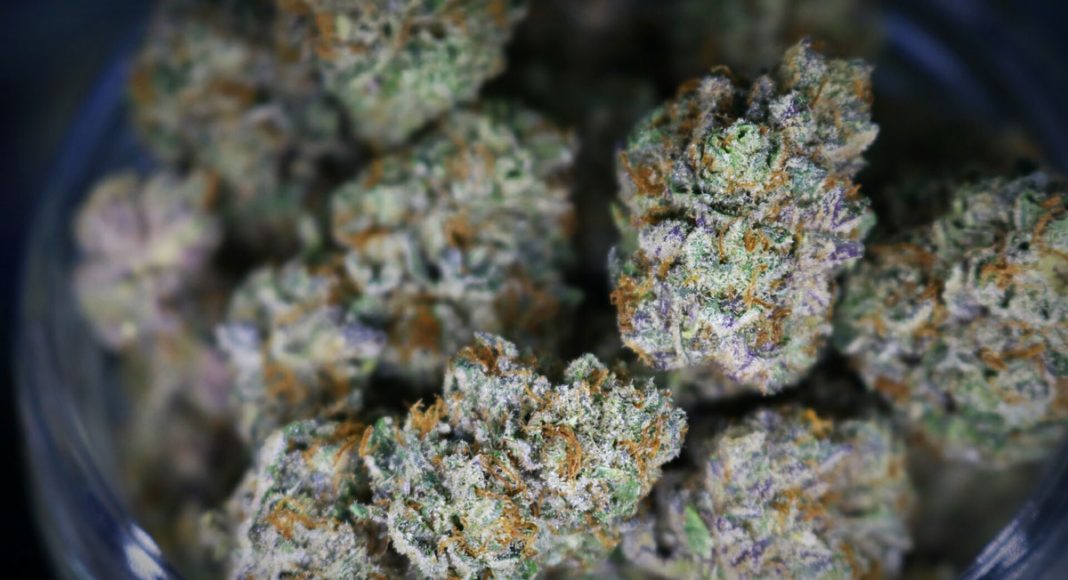There was reason for optimism surrounding marijuana legislation in Texas. Hope revolved around a growing momentum in the state around both decriminalizing and expanding its tiny, somewhat-broken medical marijuana program due to a majority swell. But in Texas, a minority can maintain an awful lot of political power.
First, the positives. The Texas House overwhelmingly approved legislation that would legalize the production, regulation, and sale of hemp in late April. Thanks to U.S. Senate Majority Leader Mitch McConnell’s shepherding of the 2018 Farm Bill, it’s opened a door conservative states to usher in similar legislation without upsetting its party or voter base. Though the Texas hemp bill still requires passage in the more conservative state Senate, Republican leaders, who are adamantly against other key marijuana bills this legislation session, have offered little to no opposition.
In fact, Lt. Gov. Dan Patrick, who heads the Texas Senate, commented this week with interest around the hemp bill, which would create a marketplace for CBD products in the state. “I want to make sure what consumers are buying is the real deal,” said Patrick, according to State Sen. Charles Perry.
RELATED: New York To Stop Testing Would-Be Employees For Marijuana
But it’s also Patrick who looms villainously regarding other key pieces of marijuana legislation. A bill that would decriminalize marijuana possession from a class B to a class C misdemeanor (the same as a traffic ticket) received final approval in the House at the end of April. Ahead of the legislative session this year, advocates were hopeful around decriminalization thanks to the public approval of such a measure by ultra-conservative Gov. Greg Abbott last year. In addition, Texas Republicans added marijuana decriminalization as a plank to their party platform last summer, as well as expansion of the state’s medical marijuana program.
Patrick, however, does not agree with such sentiments. Upon House approval of HB 63 (the cannabis decriminalization bill), Patrick declared the bill “dead” on his Twitter feed. The Texas Tribune reported at the beginning of this session that Patrick could be the roadblock that halts cannabis reform and that positions still appears true. The lieutenant governor is “strongly opposed to weakening any laws against marijuana [and] remains wary of the various medicinal use proposals that could become a vehicle for expanding access to this drug,” Patrick said through a spokesperson in March. Following his tweet, an advisor told the Tribune Patrick’s opposition stance has not changed.
Criminal Justice Chair @Whitmire_John is right that #HB 63 is dead in the @Texas Senate. I join with those House Republicans who oppose this step toward legalization of marijuana.
— Dan Patrick (@DanPatrick) April 30, 2019
The Compassionate Use Act in 2015 legalized the production and sale of low-THC cannabis oil for patients suffering from intractable epilepsy. Lawmakers in the House approved two different measures that would expand this program this month.
The first, HB 1365, is more wide-ranging and, as a result, supported by cannabis activists in the state. This measure, backed by Rep. Eddie Lucio III, would allow patients with an extensive list of ailments—including PTSD, cancer, multiple sclerosis, autism, intractable pain, severe nausea, and more—to receive cannabis oil. The bill would also establish a 12-member “cannabis therapeutic research program” that would “develop guidelines for administering medical marijuana, quality control for purity and labeling and best practices for cultivation,” according to the Dallas News.
RELATED: Does Legalizing Marijuana Help Or Harm Americans? Weighing The Statistical Evidence
But the other bill, HB 3703, is far more limiting in its expansion. Authored by Rep. Stephanie Klick, who’s also responsible for the original Compassionate Use Act bill, this measure would only include patients with all forms of epilepsy, MS, and unremitting muscle spasms. Klick told reporters last week she’s “very optimistic” her bill will gain traction in the Senate.
The legislative session ends May 27, so time is running out on cannabis reform in Texas. This is a showdown between the will of the people—only 16% of Texans opposed marijuana decriminalization in a 2018 poll—vs. a powerful political bully in Patrick. Should he choose, he can throw his weight around by blocking any substantial hearings around these bills in the Senate, effectively denying their passage. But maybe Patrick will be too occupied with his numerous FOX News appearances and forget about all this cannabis reform nonsense. Those cannabis activists who remain optimistic in Texas can only hope.


